Imagine you’re wandering through the wetlands of South America, watching capybaras laze by the water. Suddenly, you spot a vulture circling overhead. You might wonder: Is that vulture eyeing the capybaras as a snack? That’s a legit question, and we’re about to dig into it.
The short answer? Vultures typically won’t go after a live capybara, but there are exceptions. Let’s dive into the details, explore their relationship, and bust some myths along the way.
What Are Vultures Really After?
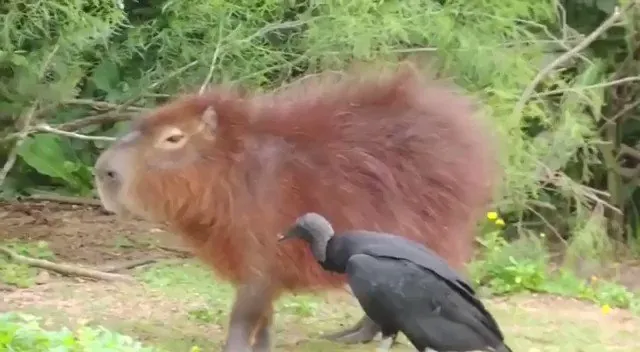
Let’s be clear: vultures are nature’s cleanup crew. They’re scavengers, not hunters, which means their primary diet is carrion (a.k.a. dead animals). But don’t let that fool you—vultures can be opportunistic. Here’s the scoop:
Black Vultures vs. Turkey Vultures
- Black Vultures: These guys are more aggressive and have been known to prey on weak or vulnerable animals, like newborn livestock. They might target baby capybaras if they’re left unguarded.
- Turkey Vultures: These are the chill cousins of black vultures. They rely on their sharp sense of smell to sniff out carrion. Live prey? Not their thing.
Capybaras: Easy Targets or Off the Menu?
Capybaras (Hydrochoerus hydrochaeris), the world’s largest rodents, are built for survival. But let’s not pretend they’re invincible. Here’s what makes them vulnerable—or not—to vultures:
Strengths of Capybaras:
- Size: Adult capybaras can weigh over 100 pounds—a bit hefty for most vultures to handle.
- Swimming Skills: These semi-aquatic rodents escape predators by diving into water.
- Social Structure: Capybaras hang out in herds, offering safety in numbers.
Vulnerabilities:
- Juveniles: Baby capybaras are small and can’t defend themselves well.
- Health Issues: Sick or injured capybaras are more likely to attract scavengers, including vultures.
Takeaway: A healthy, full-grown capybara isn’t on a vulture’s menu. But young or weak individuals? They might end up as a vulture’s meal.
When Would a Vulture Go After a Capybara?
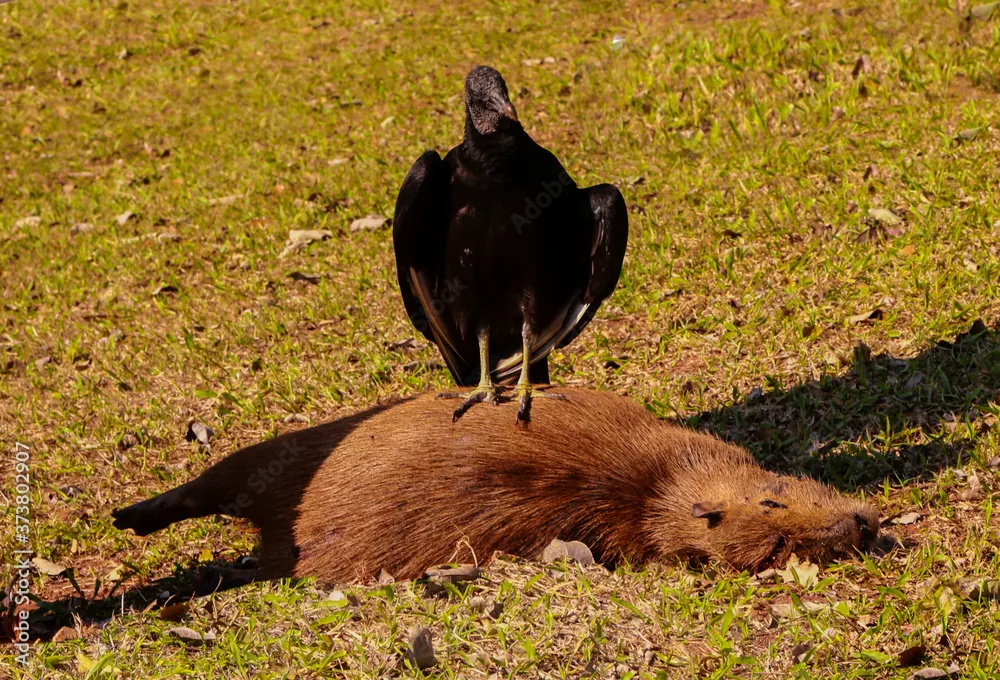
While it’s rare, here’s when vultures might interact with capybaras:
1. Scavenging After Death
Capybara carcasses are fair game. When a capybara dies—whether due to predation or natural causes—vultures swoop in to clean up the remains. This is the most common interaction.
2. Opportunistic Predation
Black vultures, known for being bolder, might take a chance on a juvenile capybara if:
- The baby is left unattended.
- It’s already weak, sick, or injured.
3. Scarce Food Resources
During tough times when carrion is scarce, vultures might push their boundaries. This could include targeting smaller or weaker animals.
What About Other Capybara Predators?
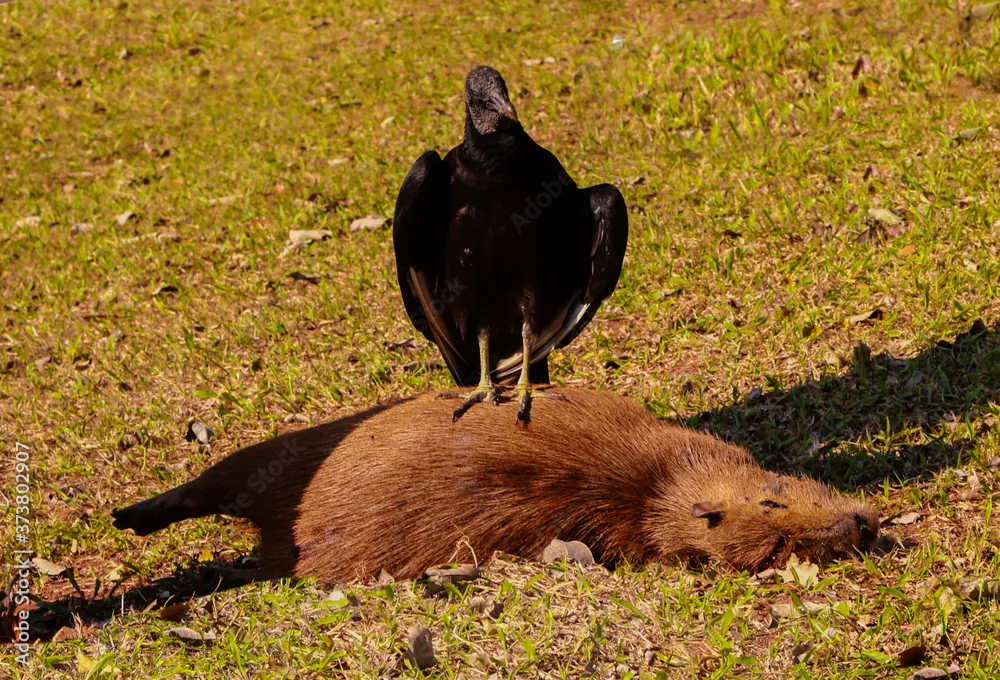
Vultures aren’t the only ones eyeing capybaras. These rodents face threats from apex predators:
- Jaguars: Capybara’s worst nightmare on land.
- Caimans: Lurking underwater, ready to ambush.
- Anacondas: Silent and deadly.
- Eagles and Hawks: Sometimes target juveniles.
Compared to these heavyweights, vultures are minor players in the predator game.
Why Vultures Matter in the Ecosystem
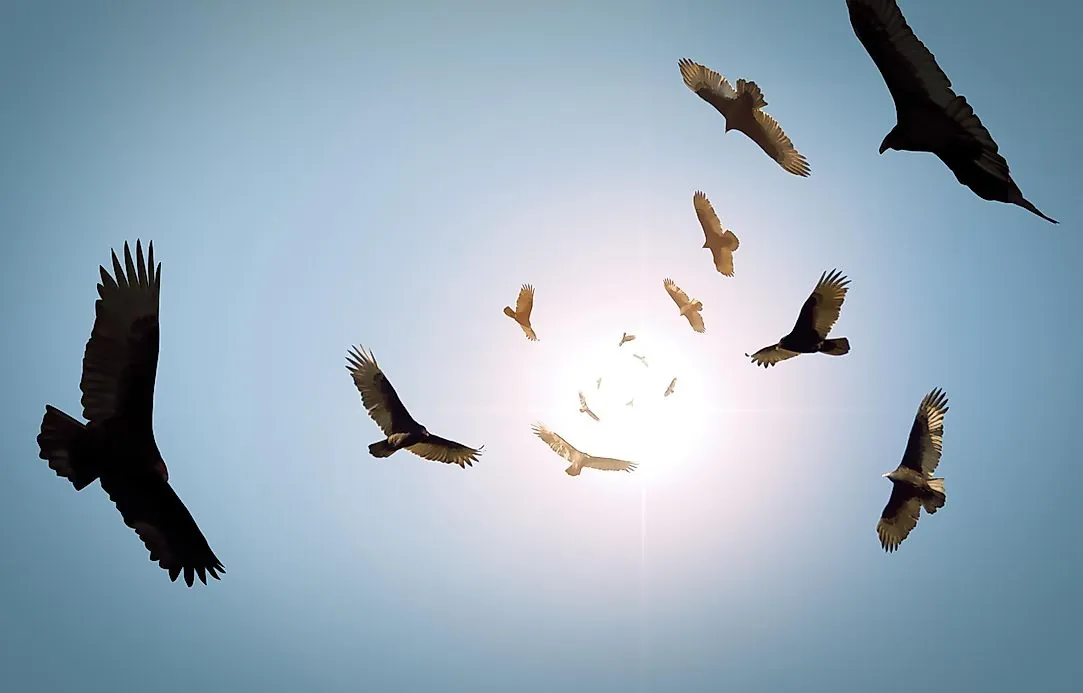
Before we give vultures a bad rap, let’s remember their importance:
- Disease Control: By eating carrion, vultures prevent the spread of harmful pathogens.
- Nutrient Recycling: They help return nutrients to the soil.
- Scavenger Teamwork: Vultures often partner with other scavengers to clean up carcasses efficiently.
In ecosystems with capybaras, vultures contribute by disposing of dead animals, maintaining balance, and supporting biodiversity.
FAQs About Vultures and Capybaras
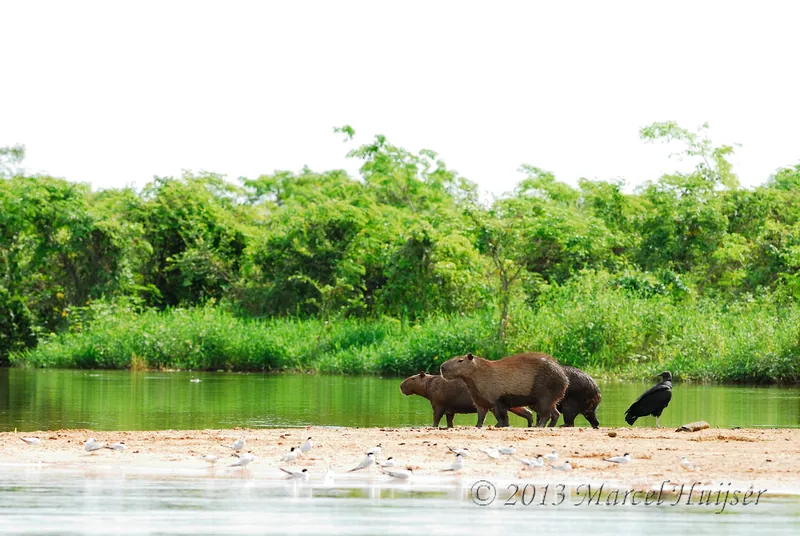
1. Do vultures actively hunt capybaras?
No, vultures don’t typically hunt live capybaras. Black vultures might target vulnerable juveniles in rare cases, but adult capybaras are off the menu.
2. Why do vultures circle capybara habitats?
Vultures often circle wetlands because these areas are rich in wildlife, increasing the chances of finding carrion.
3. What should I do if I see vultures near capybaras?
Enjoy the show! It’s likely they’re just looking for carrion and not planning to attack.
4. Do vultures pose a threat to other animals?
Vultures primarily feed on carrion but may opportunistically prey on small or vulnerable animals when food is scarce.
Final Thoughts: Are Capybaras Safe From Vultures?
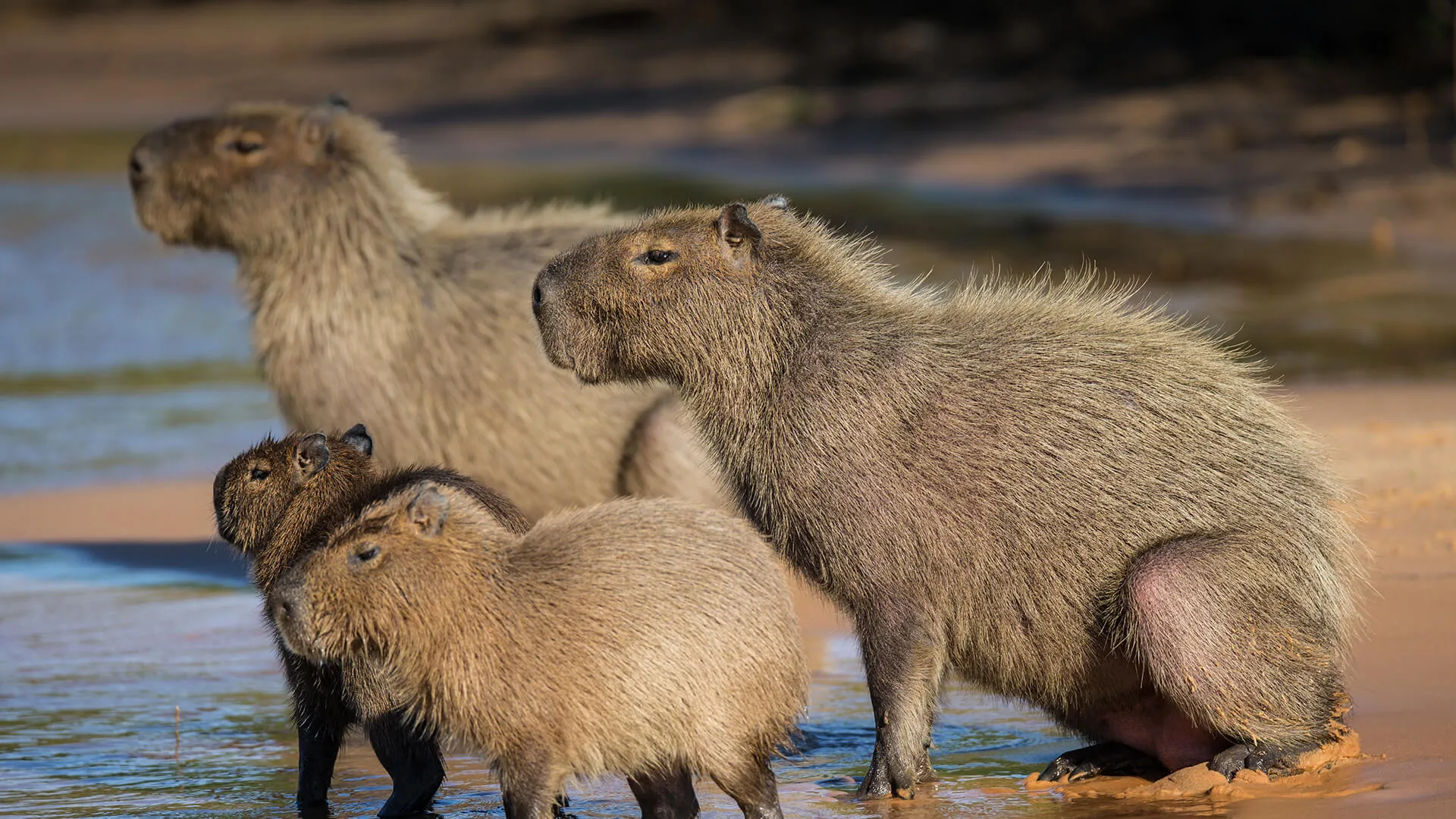
So, will a vulture eat a capybara? The answer lies in the details. Healthy adult capybaras are too large and well-equipped to be vulture prey, but juveniles or weakened individuals might face some risk. For the most part, vultures stick to what they do best: cleaning up the leftovers of nature.
Remember, vultures aren’t villains—they’re essential players in maintaining the balance of ecosystems. So, next time you see one circling above, know it’s likely just doing its job.
